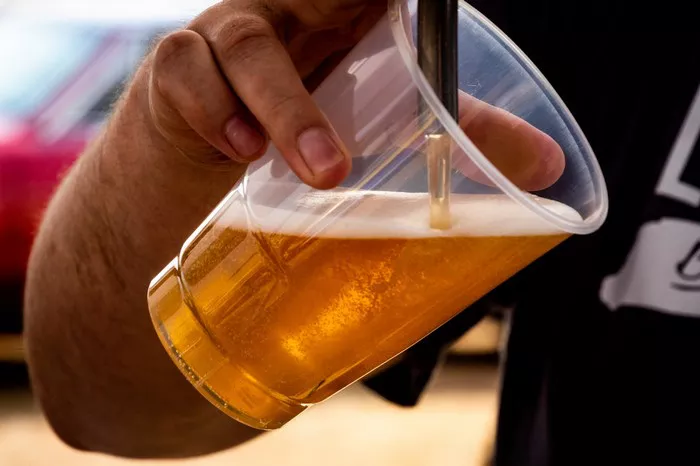In a world where cultural and religious practices intersect with modern lifestyles, questions about the permissibility of certain actions often arise. One such question that has generated considerable discussion is whether Muslims can consume non-alcoholic beer. Understanding the complexities surrounding this issue requires an exploration of Islamic jurisprudence, cultural contexts, and the nature of non-alcoholic beverages.
Islamic Jurisprudence and Alcohol Consumption
Islam, like many other major religions, prohibits the consumption of alcohol. The Quran, the holy book of Islam, explicitly prohibits intoxicants in several verses, emphasizing their negative effects on individuals and society as a whole. For example, in Surah Al-Baqarah (2:219), it is stated, “They ask you about wine and gambling. Say, ‘In them is great sin and [yet, some] benefit for people. But their sin is greater than their benefit.'” This verse highlights the recognition of certain benefits in alcohol but emphasizes the greater harm it causes.
Islamic jurisprudence, derived from the Quran and the teachings of the Prophet Muhammad (peace be upon him), elaborates on the prohibition of alcohol consumption. The consensus among Islamic scholars is that all forms of alcohol are haram (forbidden), whether consumed in large or small quantities. This includes not only beverages with high alcohol content but also foods and drinks that contain even trace amounts of alcohol due to fermentation or other processes.
Understanding Non-Alcoholic Beer
Non-alcoholic beer, also known as alcohol-free beer or low-alcohol beer, is a beverage that mimics the taste and appearance of traditional beer but contains little to no alcohol. The brewing process for non-alcoholic beer typically involves either halting fermentation before significant alcohol production occurs or removing alcohol from fully fermented beer through methods such as vacuum distillation or reverse osmosis.
Non-alcoholic beer is often marketed as an alternative for individuals who wish to enjoy the flavor of beer without the intoxicating effects of alcohol. It is widely available in markets worldwide and has gained popularity among various demographics, including those who refrain from alcohol consumption due to religious or health reasons.
The Debate Within the Muslim Community
The question of whether Muslims can drink beer without alcohol has sparked debates within the Muslim community. Some argue that since non-alcoholic beer contains negligible amounts of alcohol (usually less than 0.5% alcohol by volume in most jurisdictions), it should be permissible for Muslims to consume. They point to the principle of maslahah, which allows for concessions in Islamic law to achieve benefits or prevent harm, as justification for consuming non-alcoholic beer.
On the other hand, many Islamic scholars maintain that the prohibition of alcohol in Islam extends to all forms, regardless of alcohol content. They argue that consuming non-alcoholic beer may lead to the normalization of beer drinking, blur the lines between halal (permissible) and haram, and potentially expose individuals to the temptation of consuming alcoholic beverages.
Interpretations and Cultural Contexts
The diversity of interpretations within the Muslim community regarding the permissibility of non-alcoholic beer reflects the broader spectrum of Islamic thought and cultural practices. In some regions, non-alcoholic beer is readily accepted and consumed by Muslims without controversy, while in others, it is viewed with skepticism or outright condemnation.
Cultural attitudes toward alcohol play a significant role in shaping individual perspectives on non-alcoholic beer. In societies where alcohol consumption is taboo or strictly regulated, even non-alcoholic versions of alcoholic beverages may carry social stigma or be perceived as morally objectionable.
Rulings from Islamic Authorities
Islamic authorities and religious bodies around the world have issued various rulings regarding the consumption of non-alcoholic beer by Muslims. These rulings often reflect the prevailing interpretations of Islamic law within specific theological traditions and cultural contexts.
In some countries with predominantly Muslim populations, official fatwas (religious decrees) have been issued explicitly permitting the consumption of non-alcoholic beer as long as it does not lead to intoxication or the commission of other sinful acts. However, these fatwas are not universally accepted, and opinions on the matter remain diverse.
Personal Choice and Individual Responsibility
Ultimately, the question of whether Muslims can drink beer without alcohol is a matter of personal choice and individual responsibility. While Islamic law provides guidelines and prohibitions, individuals must exercise their own judgment and conscience in navigating complex moral and ethical issues.
For some Muslims, consuming non-alcoholic beer may pose no moral or religious dilemma, especially if they view it as a harmless indulgence or a social custom with no direct association with alcohol consumption. Others may choose to abstain from non-alcoholic beer out of caution or adherence to stricter interpretations of Islamic teachings.
Conclusion
The question of whether Muslims can drink beer without alcohol highlights the intersection of religious principles, cultural norms, and personal beliefs in contemporary society. While Islamic law unequivocally prohibits the consumption of alcohol, opinions vary among Muslims regarding the permissibility of non-alcoholic beer.
Islamic jurisprudence offers guidance on navigating ethical dilemmas and making informed choices in accordance with religious teachings. However, individuals must balance these principles with their own values, preferences, and circumstances.
In the end, the decision to consume non-alcoholic beer rests with the individual, guided by their understanding of Islamic law, personal convictions, and respect for communal norms. As with any matter of religious practice, dialogue, education, and mutual respect are essential for fostering understanding and unity within diverse communities.


